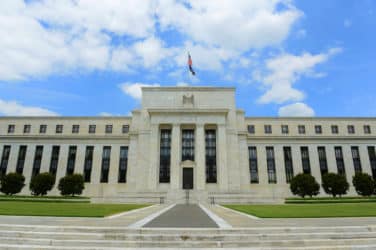Back to life, back to reality.
The equity markets returned from the summer vacation season with more of a whimper than a roar, so far. Traders have yet to see much activity as headline risk, from multiple sources such as Treasury debt ceiling posturing, Hurricanes Harvey and Irma liabilities and persistent North Korea tensions have diverted attention from the actual business of trading. Volatility remains low, one trader lamented, which also has conspired to depress volumes.
William Mingoine, Head of Equities at Drexel Hamilton in New York, told Traders Magazine that as the market has come through almost all corporate earnings his firm believes the market has two strong assertions.

William Mingione, Drexel Hamilton
“First, the market has been concerned that corporate earnings may have peaked as earnings were very positive and now we have raised expectations on many of the companies which may be hard to attain,” Mingoine began. “Secondly, that North Korea is a real threat that likely will have to be dealt with. So far it looks as if President Trump will not back down so we are headed for a showdown. The market also is still digesting the effects of Harvey and expectations for Irma begin to take their toll. We are all keeping our thoughts and prayers on South Florida as it braces for what appears to be a direct hit coming from Hurricane Irma this weekend.”
He added that it appears the effects of these hurricanes and the preceding suppressed economic activity will help keep the Federal Reserve at bay.
This was a point brought up by the Federal Reserve last week, as it has been eyeing headline events – noting last week that although economic losses from natural disasters are typically recovered because rebuilding stimulates growth, the timing of hurricanes Harvey and Irma likely will affect the its plan to increase interest rates in December. Economists across Wall Street have forecast that US GDP growth is expected to be reduced in the third quarter because of Harvey.
Fed Governor Lael Brainard, a close ally of Chairman Yellen, publicly acknowledged that it could be a while before the central bank hits its inflation target as it read the inflation tea leaves wrong. In comments, she now believes the Fed should move slower on rate hikes and even allow inflation to run above the 2 percent target for a while.
“I am concerned that the recent low readings for inflation may be driven by depressed underlying inflation, which would imply a more persistent shortfall in inflation from our objective,” Brainard told the Economic Club in New York last week. “In that case, it would be prudent to raise the federal funds rate more gradually.”
Mingoine added that US jobless claims came in the highest last week in two years.
“Just keep in mind that this data is skewed due to effects of Harvey. Media stocks have been hit particularly hard, with Walt Disney and Comcast weighing on the broader market,” he recalled. “Crude oil prices pared recent rises but held its ground on lower than expected increase in crude oil stocks.”
In other market news, President Donald Trump and Democratic leaders in Congress have agreed to extend the debt limit for three months and to ensure the government has enough money to continue operating through early December. Senate Majority Leader Mitch McConnell, R-Ky., says he supports a measure to combine the debt ceiling extension with aid for recovery from the storm Harvey.
Relatedly, Federal Reserve Vice Chairman Stanley Fischer has notified the President he plans to leave in mid-October, citing personal reasons. The action was unexpected.
In the equities market, IEX, the newest U.S. exchange operator, is looking for corporate listings, and the newest U.S. exchange operator has signaled it will compete aggressively on price to get them.
In a Sept. 1 regulatory filing, IEX said it will charge companies a flat annual listing fee of $50,000. By comparison, NYSE Arca charges a minimum annual fee of $30,000, but additional costs based on the company’s market capitalization that can push the cost to as much as $250,000. Nasdaq charges a standard annual listing fee of $40,000 for companies with fewer than 10 million shares, but fees range up to $155,000 for companies with more than 150 million shares.
Lastly, the DTCC, ICI and SIFMA oversaw the transition to a standard settlement timeframe of trade date plus two days (T+2) for in-scope securities, including U.S. equity, corporate and municipal bond, and unit investment trust (UIT) trades, reducing operational and systemic risks to the U.S. marketplace.
Beginning Sept 5, trades in the affected securities will settle in two business days instead of the previous three-day cycle, providing significant benefits, including reduced market and counterparty risk, increased financial stability and improved safety and efficiency for investors and market participants. The shorter settlement timeframe also aligns the U.S. with other major markets globally that use T+2 settlement, providing an increased level of global settlement harmonization across jurisdictions and regions.
| This Week’s U.S. Economic Indicators of Interest: | ||
| Monday | 3 Year Note Auction | |
|
Tuesday |
Redbook Retail Sales
10 Year Note Auction |
|
| Wednesday | Producer Price Index
30 Year Bond Auction Treasury Budget Statement |
|
| Thursday | Jobless Claims
Consumer Price Index Personal Income New Home Sales |
|
|
Friday |
Retail Sales
Industrial Production Business Inventories Consumer Sentiment |
|





